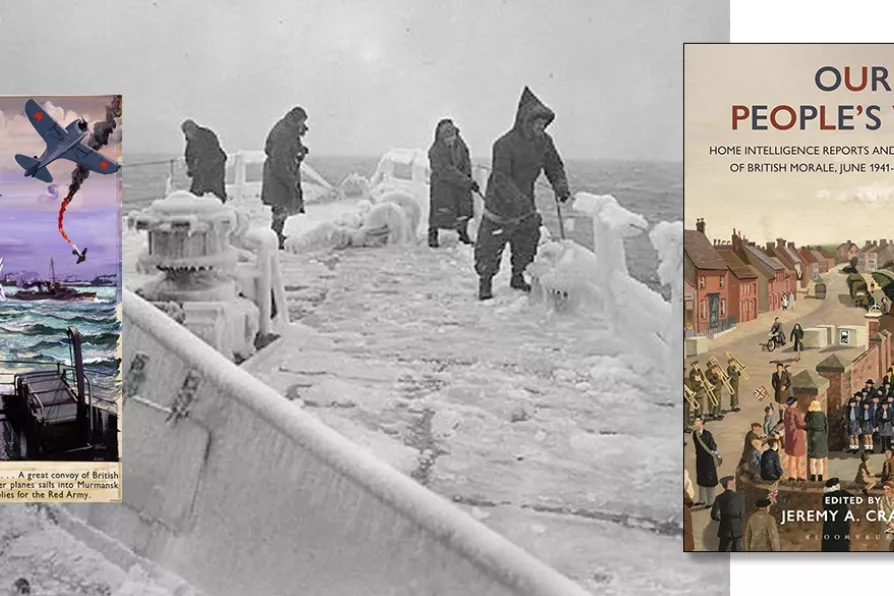ALAN McGUIRE welcomes a biography of the French semiologist and philosopher

 Popular support for the USSR was emphasised by the Arctic convoys, bringing food and munitions to Murmansk from 1941 - 1945. The image shows members of the crew clearing the frozen focsle of HMS INGLEFIELD during convoy duty in Arctic waters; the inset image shows Scottish artist Frederick Donald Blake’s propaganda image for the convoys
[National archives/Admiralty Official Collection/CC]
Popular support for the USSR was emphasised by the Arctic convoys, bringing food and munitions to Murmansk from 1941 - 1945. The image shows members of the crew clearing the frozen focsle of HMS INGLEFIELD during convoy duty in Arctic waters; the inset image shows Scottish artist Frederick Donald Blake’s propaganda image for the convoys
[National archives/Admiralty Official Collection/CC] Our People’s War: Home Intelligence Reports and the Monitoring of British Morale, June 1941 – December 1944
Jeremy Crang, Bloomsbury, £20
DURING the second world war, the British government conducted a unique experiment in monitoring public opinion, carried out by Home Intelligence, a unit of the Ministry of Information.
The government needed to know what people were thinking in order to know how best to make them think the right way.
Regional intelligence officers created panels of regional “contacts” to gather the raw material from which they compiled their weekly reports on public opinion. These contacts were recruited, on a ratio of one to every 10,000, from among men and women who were “sensible” and “level-headed.”

Communists lit the spark in the fight against Nazi German occupation, triggering organised sabotage and building bridges between political movements. Many paid with their lives, says Anders Hauch Fenger

The pivotal role of the Red Army and sacrifices of the Russian people in the defeat of Nazi Germany must never be forgotten, writes DR DYLAN MURPHY

JOHN ELLISON recalls the momentous role of the French resistance during WWII











